Cellulite, the bane of many people’s existence, is a common cosmetic concern characterized by dimpled skin, often found on the thighs, buttocks, and abdomen. While it’s important to note that there is no magical cure for cellulite, the use of essential oils has gained popularity in recent years as a natural approach to improving the appearance of the skin and temporarily reducing the visibility of cellulite. In this article, we will delve into the effectiveness of Essential Oils for Cellulite and how these aromatic extracts can be powerful allies in your skincare routine.
Grapefruit essential oil is renowned for its invigorating properties, particularly its ability to stimulate blood circulation and aid in the elimination of toxins from skin tissues. This oil is extracted from the peel of the grapefruit and contains powerful antioxidants and phytochemicals that contribute to its health benefits. Its refreshing, citrusy aroma not only uplifts the mood but also has therapeutic applications in aromatherapy and skincare.A significant study published in the Journal of Medicinal Food in 2006 highlighted the impact of grapefruit essential oil on body weight and fat accumulation. The research demonstrated that when used topically, grapefruit essential oil could enhance the effectiveness of weight loss programs. The study participants who incorporated grapefruit essential oil into their routine experienced noticeable improvements in their body composition, particularly in the reduction of abdominal fat. This effect is attributed to the oil’s ability to activate enzymes that promote the breakdown of fats and its stimulating effects on the lymphatic system, which plays a crucial role in detoxification and metabolism.In addition to its weight management benefits, grapefruit essential oil is also valued for its antimicrobial properties, making it a popular choice in natural skincare products aimed at treating acne and other skin conditions. Its ability to balance the skin’s oil production while providing astringent properties helps in maintaining a clear and healthy complexion. Moreover, the invigorating scent of grapefruit essential oil is often used in diffusers to reduce stress, boost energy levels, and improve mental clarity.Overall, grapefruit essential oil is a versatile and potent natural remedy that supports both physical and emotional well-being. Whether used for its metabolic benefits, skincare advantages, or mood-enhancing properties, it is a valuable addition to any holistic health regimen.
Lemon essential oil is renowned for its myriad health benefits, particularly its toning properties that can stimulate the lymphatic system and improve skin elasticity. This vibrant oil, extracted from the peels of fresh lemons, is a popular ingredient in aromatherapy and skincare due to its refreshing scent and potent therapeutic properties.A significant study published in the journal Evidence-Based Complementary and Alternative Medicine in 2013 highlighted the antioxidant and anti-inflammatory effects of lemon essential oil. The study demonstrated that the oil’s rich content of limonene, a powerful antioxidant, helps neutralize free radicals, thereby protecting the skin from oxidative stress and premature aging. Furthermore, the anti-inflammatory properties of lemon essential oil contribute to reducing skin inflammation and promoting a clearer, healthier complexion.In addition to its skincare benefits, lemon essential oil is also known for its ability to enhance mood and cognitive function. Its invigorating aroma can uplift spirits, reduce anxiety, and improve concentration, making it a valuable tool in both physical and emotional wellness.When applied topically, diluted in a carrier oil, lemon essential oil can tone and tighten the skin, reducing the appearance of sagging and improving overall skin texture. It stimulates the lymphatic system, aiding in the removal of toxins and excess fluids, which can further enhance skin health and vitality.Overall, lemon essential oil is a versatile and powerful natural remedy that offers a wide range of benefits, from enhancing skin health to boosting mental clarity and emotional well-being.
Cedarwood essential oil, derived from the wood of cedar trees, is known for its numerous health and beauty benefits. One of its notable properties is its detoxifying ability, which helps to cleanse the body of impurities and can contribute to skin tightening. While specific scientific studies on cedarwood essential oil’s effectiveness against cellulite are limited, anecdotal evidence and traditional usage suggest its beneficial role in skincare routines aimed at reducing the appearance of cellulite.The oil is often incorporated into cellulite treatment blends due to its grounding and calming aroma, which can enhance the overall experience of a massage or topical application. In aromatherapy, cedarwood essential oil is prized for its ability to soothe anxiety and promote a sense of well-being, making it a popular choice for holistic health practices. Additionally, its anti-inflammatory and antimicrobial properties can further support skin health by reducing inflammation and preventing infections, which may indirectly improve skin texture and firmness.In summary, while more research is needed to confirm cedarwood essential oil’s direct impact on cellulite, its detoxifying, calming, and skin-tightening properties make it a valuable addition to skincare and wellness routines.
Peppermint essential oil, known for its invigorating scent, contains menthol, which provides a cooling sensation when applied to the skin. This cooling effect is not only refreshing but also beneficial for improving blood circulation. Enhanced circulation can contribute to various health benefits, including reduced muscle soreness and improved skin health.Moreover, peppermint essential oil has been studied for its potential role in weight management. A notable study published in the Journal of Korean Academy of Nursing in 2010 investigated the effects of the topical application of peppermint oil on abdominal fat. The findings suggested that peppermint oil could significantly reduce abdominal fat when applied consistently. This discovery opens up possibilities for using peppermint oil as a natural aid in body contouring and weight loss regimes.In addition to its physical benefits, peppermint oil is often used in aromatherapy to boost mental clarity and focus. The invigorating aroma can help alleviate stress and improve cognitive function, making it a popular choice for use in diffusers and personal inhalers. Overall, the versatile benefits of peppermint essential oil make it a valuable addition to both health and wellness routines.
Rosemary essential oil is renowned for its myriad benefits, particularly its ability to stimulate blood flow and strengthen skin tissue. This versatile oil is extracted from the aromatic leaves of the rosemary plant, which has been used for centuries in traditional medicine for its therapeutic properties. One of the key advantages of rosemary essential oil is its capacity to enhance circulation, which can promote healthier and more vibrant skin. Additionally, it helps to fortify the skin’s structural integrity, making it more resilient to environmental stressors and aging.Scientific research supports these benefits. For instance, a study published in the journal Food Chemistry in 2015 highlighted the potent antioxidant and anti-inflammatory properties of rosemary oil. These properties are crucial in combating oxidative stress and inflammation, both of which are major contributors to skin aging and various skin disorders. The antioxidants in rosemary oil help neutralize free radicals, thereby protecting skin cells from damage and preserving a youthful appearance. Furthermore, its anti-inflammatory effects can soothe irritated skin and reduce redness, making it an excellent ingredient for those with sensitive or acne-prone skin.In addition to its skin benefits, rosemary essential oil is also valued for its invigorating scent and its potential to improve cognitive function. Its fresh, herbaceous aroma is often used in aromatherapy to enhance mental clarity and concentration, offering a natural way to boost mood and productivity. Whether applied topically, inhaled, or used in a diffuser, rosemary essential oil is a powerful addition to any wellness routine, providing both physical and mental benefits.
Juniper berry essential oil is renowned for its diuretic properties, making it a popular choice for reducing water retention and bloating often associated with cellulite. These properties help the body eliminate excess fluids, which can lead to a temporary improvement in the appearance of cellulite. A study published in the Journal of Ethnopharmacology in 2014 found that juniper essential oil exhibited significant diuretic effects in rats, providing a scientific basis for its traditional use in herbal medicine.Beyond its diuretic effects, juniper berry essential oil also boasts anti-inflammatory and antioxidant properties. These additional benefits contribute to its effectiveness in improving skin health and potentially reducing the visibility of cellulite. The antioxidants help combat oxidative stress, which can damage skin cells and contribute to the formation of cellulite. Meanwhile, the anti-inflammatory properties can soothe the skin and reduce inflammation, which may also help diminish the appearance of cellulite over time.When using juniper berry essential oil for its potential benefits, it is essential to dilute it properly with a carrier oil, such as coconut or jojoba oil, before applying it to the skin. This dilution helps prevent skin irritation and ensures the oil’s safe use. Additionally, incorporating regular massage with this diluted oil can enhance its effects by promoting better blood circulation and lymphatic drainage, further aiding in the reduction of fluid retention and the overall appearance of cellulite.In summary, juniper berry essential oil is a multifaceted natural remedy with proven diuretic effects and additional skin benefits. While more research is needed to fully understand its impact on cellulite, its traditional use and the existing scientific evidence suggest that it can be a valuable addition to a holistic approach to managing cellulite.
Fennel essential oil is renowned for its potential detoxifying properties, which may contribute to overall skin health. It is extracted from the seeds of the fennel plant (Foeniculum vulgare) through steam distillation. The oil is rich in compounds like anethole, limonene, and fenchone, which are believed to offer a variety of therapeutic benefits.One of the key reasons fennel essential oil is used in skincare, particularly in anti-cellulite treatments, is its purported ability to break down fatty deposits under the skin. While scientific studies specifically examining fennel oil’s impact on cellulite are limited, anecdotal evidence and traditional practices suggest that it may help improve the appearance of dimpled skin. This effect is thought to result from its diuretic properties, which can help reduce water retention and promote the elimination of toxins from the body.Fennel essential oil is often incorporated into massage blends for cellulite treatment. When used in massage, the oil is typically diluted with a carrier oil, such as jojoba or almond oil, to prevent skin irritation. The massage itself can stimulate circulation and lymphatic drainage, further aiding in the reduction of cellulite’s appearance. Regular use, combined with a healthy diet and exercise, may enhance these benefits.Additionally, fennel essential oil is known for its pleasant, sweet, and slightly spicy aroma, which can have calming effects when used in aromatherapy. This multifaceted oil not only supports physical detoxification but also offers mental relaxation, contributing to an overall sense of well-being.In summary, while more research is needed to fully understand the extent of fennel essential oil’s benefits for cellulite, its detoxifying properties and traditional use in massage blends make it a popular choice for those seeking natural skincare solutions.
Cypress essential oil is renowned for its therapeutic properties, particularly its ability to enhance circulation and alleviate fluid retention. Derived from the needles and twigs of the Cypress tree (Cupressus sempervirens), this essential oil has been used for centuries in traditional medicine for its astringent, antiseptic, and diuretic effects.Recent scientific studies have provided evidence supporting these traditional uses. For instance, a study published in the Journal of Korean Biological Nursing Science in 2012 investigated the potential benefits of cypress essential oil in a weight management context. The research conducted by J. Y. Kim and colleagues revealed that when used alongside a structured weight loss program, cypress oil could significantly contribute to the reduction of body fat and cellulite. The study’s findings suggest that the oil’s active compounds may stimulate blood flow and lymphatic drainage, thereby facilitating the breakdown and elimination of fat cells.In addition to its weight management benefits, cypress essential oil is also valued for its calming and soothing properties. It is often used in aromatherapy to relieve stress and anxiety, promote mental clarity, and support overall emotional well-being. Its fresh, woody aroma is believed to have grounding effects, making it a popular choice for meditation and relaxation practices.Moreover, cypress oil is beneficial for skincare. Its astringent qualities can help tighten and tone the skin, making it useful in treatments for oily or acne-prone skin. It can also be applied in massage blends to relieve muscle pain and spasms, thanks to its anti-inflammatory and antispasmodic properties.Given its wide range of uses and benefits, cypress essential oil is a versatile addition to any natural wellness regimen. However, as with all essential oils, it is important to use it properly and consult with a healthcare provider, especially for those with underlying health conditions or those who are pregnant or breastfeeding.
Geranium essential oil, derived from the fragrant flowers of the geranium plant, is renowned for its multifaceted benefits, particularly in skincare. With its delicate floral aroma, this oil not only delights the senses but also offers a plethora of therapeutic properties. One of its most acclaimed virtues lies in its ability to tone and rejuvenate the skin, making it a prized ingredient in numerous skincare formulations.Research published in the Journal of Alternative and Complementary Medicine in 2013 shed light on the remarkable potential of geranium oil. The study underscored its anti-inflammatory and antioxidant prowess, suggesting that it could be a valuable asset in combating various skin concerns. From soothing irritation to combating free radical damage, geranium oil emerges as a versatile ally in nurturing skin health.Beyond its skincare benefits, geranium oil is celebrated for its aromatic profile, which evokes a sense of tranquility and balance. Its sweet, floral scent has been cherished for centuries for its ability to uplift the mood and ease stress. Whether diffused aromatically or incorporated into massage oils, geranium oil envelops the senses in a comforting embrace, fostering a serene ambiance.In addition to its skincare and aromatic virtues, geranium oil holds promise in holistic wellness practices. Its reputed ability to balance emotions and promote relaxation makes it a popular choice in aromatherapy. Whether seeking solace from the daily stresses or embarking on a journey of self-care, geranium oil stands as a steadfast companion, offering a fragrant pathway to well-being.
Lavender essential oil, extracted from the fragrant lavender plant, holds a revered status in the realm of aromatherapy and natural remedies. Its delicate floral scent evokes a sense of tranquility and relaxation, making it a popular choice for promoting emotional well-being. Beyond its aromatic allure, lavender oil is celebrated for its myriad therapeutic benefits, including its ability to soothe the mind and calm the senses.In the realm of skincare, lavender essential oil is often hailed for its gentle yet effective properties. While it may not directly target cellulite, its anti-inflammatory and antioxidant properties can contribute to healthier-looking skin. By alleviating stress and promoting relaxation, lavender oil may indirectly support skin health by reducing the impact of stress-related factors on the skin, such as inflammation and oxidative stress.Moreover, the calming aroma of lavender essential oil can enhance the efficacy of self-care rituals, transforming mundane skincare routines into indulgent moments of rejuvenation and mindfulness. Whether incorporated into a luxurious bath soak, blended into a nourishing body oil, or diffused in a tranquil space, lavender oil has the power to uplift the spirit and create a sanctuary of serenity amidst the chaos of everyday life.In essence, while lavender essential oil may not be a direct solution for cellulite, its holistic benefits extend beyond mere skincare concerns. By fostering a sense of calm and promoting overall well-being, lavender oil serves as a versatile ally in the pursuit of radiant skin and inner harmony.
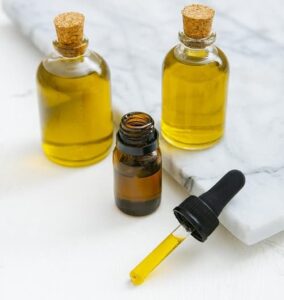
The Science Behind Essential Oils:
Essential oils are highly concentrated, volatile compounds extracted from plants, each possessing a unique blend of active components. These oils are obtained through various methods such as steam distillation, cold pressing, or solvent extraction, ensuring that the potent bioactive ingredients are preserved. When applied topically, essential oils interact with the skin and underlying tissues in several ways, offering a range of therapeutic benefits:- Improved Circulation:
- Detoxification:
- Skin Tightening:
- Stress Reduction:
Essential oils commonly used in the fight against cellulite
 Grapefruit Essential Oil:
Grapefruit Essential Oil:
Grapefruit essential oil is renowned for its invigorating properties, particularly its ability to stimulate blood circulation and aid in the elimination of toxins from skin tissues. This oil is extracted from the peel of the grapefruit and contains powerful antioxidants and phytochemicals that contribute to its health benefits. Its refreshing, citrusy aroma not only uplifts the mood but also has therapeutic applications in aromatherapy and skincare.A significant study published in the Journal of Medicinal Food in 2006 highlighted the impact of grapefruit essential oil on body weight and fat accumulation. The research demonstrated that when used topically, grapefruit essential oil could enhance the effectiveness of weight loss programs. The study participants who incorporated grapefruit essential oil into their routine experienced noticeable improvements in their body composition, particularly in the reduction of abdominal fat. This effect is attributed to the oil’s ability to activate enzymes that promote the breakdown of fats and its stimulating effects on the lymphatic system, which plays a crucial role in detoxification and metabolism.In addition to its weight management benefits, grapefruit essential oil is also valued for its antimicrobial properties, making it a popular choice in natural skincare products aimed at treating acne and other skin conditions. Its ability to balance the skin’s oil production while providing astringent properties helps in maintaining a clear and healthy complexion. Moreover, the invigorating scent of grapefruit essential oil is often used in diffusers to reduce stress, boost energy levels, and improve mental clarity.Overall, grapefruit essential oil is a versatile and potent natural remedy that supports both physical and emotional well-being. Whether used for its metabolic benefits, skincare advantages, or mood-enhancing properties, it is a valuable addition to any holistic health regimen. Lemon Essential Oil:
Lemon Essential Oil:
Lemon essential oil is renowned for its myriad health benefits, particularly its toning properties that can stimulate the lymphatic system and improve skin elasticity. This vibrant oil, extracted from the peels of fresh lemons, is a popular ingredient in aromatherapy and skincare due to its refreshing scent and potent therapeutic properties.A significant study published in the journal Evidence-Based Complementary and Alternative Medicine in 2013 highlighted the antioxidant and anti-inflammatory effects of lemon essential oil. The study demonstrated that the oil’s rich content of limonene, a powerful antioxidant, helps neutralize free radicals, thereby protecting the skin from oxidative stress and premature aging. Furthermore, the anti-inflammatory properties of lemon essential oil contribute to reducing skin inflammation and promoting a clearer, healthier complexion.In addition to its skincare benefits, lemon essential oil is also known for its ability to enhance mood and cognitive function. Its invigorating aroma can uplift spirits, reduce anxiety, and improve concentration, making it a valuable tool in both physical and emotional wellness.When applied topically, diluted in a carrier oil, lemon essential oil can tone and tighten the skin, reducing the appearance of sagging and improving overall skin texture. It stimulates the lymphatic system, aiding in the removal of toxins and excess fluids, which can further enhance skin health and vitality.Overall, lemon essential oil is a versatile and powerful natural remedy that offers a wide range of benefits, from enhancing skin health to boosting mental clarity and emotional well-being. Cedarwood Essential Oil:
Cedarwood Essential Oil:
Cedarwood essential oil, derived from the wood of cedar trees, is known for its numerous health and beauty benefits. One of its notable properties is its detoxifying ability, which helps to cleanse the body of impurities and can contribute to skin tightening. While specific scientific studies on cedarwood essential oil’s effectiveness against cellulite are limited, anecdotal evidence and traditional usage suggest its beneficial role in skincare routines aimed at reducing the appearance of cellulite.The oil is often incorporated into cellulite treatment blends due to its grounding and calming aroma, which can enhance the overall experience of a massage or topical application. In aromatherapy, cedarwood essential oil is prized for its ability to soothe anxiety and promote a sense of well-being, making it a popular choice for holistic health practices. Additionally, its anti-inflammatory and antimicrobial properties can further support skin health by reducing inflammation and preventing infections, which may indirectly improve skin texture and firmness.In summary, while more research is needed to confirm cedarwood essential oil’s direct impact on cellulite, its detoxifying, calming, and skin-tightening properties make it a valuable addition to skincare and wellness routines. Peppermint Essential Oil:
Peppermint Essential Oil:
Peppermint essential oil, known for its invigorating scent, contains menthol, which provides a cooling sensation when applied to the skin. This cooling effect is not only refreshing but also beneficial for improving blood circulation. Enhanced circulation can contribute to various health benefits, including reduced muscle soreness and improved skin health.Moreover, peppermint essential oil has been studied for its potential role in weight management. A notable study published in the Journal of Korean Academy of Nursing in 2010 investigated the effects of the topical application of peppermint oil on abdominal fat. The findings suggested that peppermint oil could significantly reduce abdominal fat when applied consistently. This discovery opens up possibilities for using peppermint oil as a natural aid in body contouring and weight loss regimes.In addition to its physical benefits, peppermint oil is often used in aromatherapy to boost mental clarity and focus. The invigorating aroma can help alleviate stress and improve cognitive function, making it a popular choice for use in diffusers and personal inhalers. Overall, the versatile benefits of peppermint essential oil make it a valuable addition to both health and wellness routines. Rosemary Essential Oil:
Rosemary Essential Oil:
Rosemary essential oil is renowned for its myriad benefits, particularly its ability to stimulate blood flow and strengthen skin tissue. This versatile oil is extracted from the aromatic leaves of the rosemary plant, which has been used for centuries in traditional medicine for its therapeutic properties. One of the key advantages of rosemary essential oil is its capacity to enhance circulation, which can promote healthier and more vibrant skin. Additionally, it helps to fortify the skin’s structural integrity, making it more resilient to environmental stressors and aging.Scientific research supports these benefits. For instance, a study published in the journal Food Chemistry in 2015 highlighted the potent antioxidant and anti-inflammatory properties of rosemary oil. These properties are crucial in combating oxidative stress and inflammation, both of which are major contributors to skin aging and various skin disorders. The antioxidants in rosemary oil help neutralize free radicals, thereby protecting skin cells from damage and preserving a youthful appearance. Furthermore, its anti-inflammatory effects can soothe irritated skin and reduce redness, making it an excellent ingredient for those with sensitive or acne-prone skin.In addition to its skin benefits, rosemary essential oil is also valued for its invigorating scent and its potential to improve cognitive function. Its fresh, herbaceous aroma is often used in aromatherapy to enhance mental clarity and concentration, offering a natural way to boost mood and productivity. Whether applied topically, inhaled, or used in a diffuser, rosemary essential oil is a powerful addition to any wellness routine, providing both physical and mental benefits. Juniper Berry Essential Oil:
Juniper Berry Essential Oil:
Juniper berry essential oil is renowned for its diuretic properties, making it a popular choice for reducing water retention and bloating often associated with cellulite. These properties help the body eliminate excess fluids, which can lead to a temporary improvement in the appearance of cellulite. A study published in the Journal of Ethnopharmacology in 2014 found that juniper essential oil exhibited significant diuretic effects in rats, providing a scientific basis for its traditional use in herbal medicine.Beyond its diuretic effects, juniper berry essential oil also boasts anti-inflammatory and antioxidant properties. These additional benefits contribute to its effectiveness in improving skin health and potentially reducing the visibility of cellulite. The antioxidants help combat oxidative stress, which can damage skin cells and contribute to the formation of cellulite. Meanwhile, the anti-inflammatory properties can soothe the skin and reduce inflammation, which may also help diminish the appearance of cellulite over time.When using juniper berry essential oil for its potential benefits, it is essential to dilute it properly with a carrier oil, such as coconut or jojoba oil, before applying it to the skin. This dilution helps prevent skin irritation and ensures the oil’s safe use. Additionally, incorporating regular massage with this diluted oil can enhance its effects by promoting better blood circulation and lymphatic drainage, further aiding in the reduction of fluid retention and the overall appearance of cellulite.In summary, juniper berry essential oil is a multifaceted natural remedy with proven diuretic effects and additional skin benefits. While more research is needed to fully understand its impact on cellulite, its traditional use and the existing scientific evidence suggest that it can be a valuable addition to a holistic approach to managing cellulite. Fennel Essential Oil:
Fennel Essential Oil:
Fennel essential oil is renowned for its potential detoxifying properties, which may contribute to overall skin health. It is extracted from the seeds of the fennel plant (Foeniculum vulgare) through steam distillation. The oil is rich in compounds like anethole, limonene, and fenchone, which are believed to offer a variety of therapeutic benefits.One of the key reasons fennel essential oil is used in skincare, particularly in anti-cellulite treatments, is its purported ability to break down fatty deposits under the skin. While scientific studies specifically examining fennel oil’s impact on cellulite are limited, anecdotal evidence and traditional practices suggest that it may help improve the appearance of dimpled skin. This effect is thought to result from its diuretic properties, which can help reduce water retention and promote the elimination of toxins from the body.Fennel essential oil is often incorporated into massage blends for cellulite treatment. When used in massage, the oil is typically diluted with a carrier oil, such as jojoba or almond oil, to prevent skin irritation. The massage itself can stimulate circulation and lymphatic drainage, further aiding in the reduction of cellulite’s appearance. Regular use, combined with a healthy diet and exercise, may enhance these benefits.Additionally, fennel essential oil is known for its pleasant, sweet, and slightly spicy aroma, which can have calming effects when used in aromatherapy. This multifaceted oil not only supports physical detoxification but also offers mental relaxation, contributing to an overall sense of well-being.In summary, while more research is needed to fully understand the extent of fennel essential oil’s benefits for cellulite, its detoxifying properties and traditional use in massage blends make it a popular choice for those seeking natural skincare solutions. Cypress Essential Oil:
Cypress Essential Oil:
Cypress essential oil is renowned for its therapeutic properties, particularly its ability to enhance circulation and alleviate fluid retention. Derived from the needles and twigs of the Cypress tree (Cupressus sempervirens), this essential oil has been used for centuries in traditional medicine for its astringent, antiseptic, and diuretic effects.Recent scientific studies have provided evidence supporting these traditional uses. For instance, a study published in the Journal of Korean Biological Nursing Science in 2012 investigated the potential benefits of cypress essential oil in a weight management context. The research conducted by J. Y. Kim and colleagues revealed that when used alongside a structured weight loss program, cypress oil could significantly contribute to the reduction of body fat and cellulite. The study’s findings suggest that the oil’s active compounds may stimulate blood flow and lymphatic drainage, thereby facilitating the breakdown and elimination of fat cells.In addition to its weight management benefits, cypress essential oil is also valued for its calming and soothing properties. It is often used in aromatherapy to relieve stress and anxiety, promote mental clarity, and support overall emotional well-being. Its fresh, woody aroma is believed to have grounding effects, making it a popular choice for meditation and relaxation practices.Moreover, cypress oil is beneficial for skincare. Its astringent qualities can help tighten and tone the skin, making it useful in treatments for oily or acne-prone skin. It can also be applied in massage blends to relieve muscle pain and spasms, thanks to its anti-inflammatory and antispasmodic properties.Given its wide range of uses and benefits, cypress essential oil is a versatile addition to any natural wellness regimen. However, as with all essential oils, it is important to use it properly and consult with a healthcare provider, especially for those with underlying health conditions or those who are pregnant or breastfeeding. Geranium Essential Oil:
Geranium Essential Oil:
Geranium essential oil, derived from the fragrant flowers of the geranium plant, is renowned for its multifaceted benefits, particularly in skincare. With its delicate floral aroma, this oil not only delights the senses but also offers a plethora of therapeutic properties. One of its most acclaimed virtues lies in its ability to tone and rejuvenate the skin, making it a prized ingredient in numerous skincare formulations.Research published in the Journal of Alternative and Complementary Medicine in 2013 shed light on the remarkable potential of geranium oil. The study underscored its anti-inflammatory and antioxidant prowess, suggesting that it could be a valuable asset in combating various skin concerns. From soothing irritation to combating free radical damage, geranium oil emerges as a versatile ally in nurturing skin health.Beyond its skincare benefits, geranium oil is celebrated for its aromatic profile, which evokes a sense of tranquility and balance. Its sweet, floral scent has been cherished for centuries for its ability to uplift the mood and ease stress. Whether diffused aromatically or incorporated into massage oils, geranium oil envelops the senses in a comforting embrace, fostering a serene ambiance.In addition to its skincare and aromatic virtues, geranium oil holds promise in holistic wellness practices. Its reputed ability to balance emotions and promote relaxation makes it a popular choice in aromatherapy. Whether seeking solace from the daily stresses or embarking on a journey of self-care, geranium oil stands as a steadfast companion, offering a fragrant pathway to well-being. Lavender Essential Oil:
Lavender Essential Oil:
Lavender essential oil, extracted from the fragrant lavender plant, holds a revered status in the realm of aromatherapy and natural remedies. Its delicate floral scent evokes a sense of tranquility and relaxation, making it a popular choice for promoting emotional well-being. Beyond its aromatic allure, lavender oil is celebrated for its myriad therapeutic benefits, including its ability to soothe the mind and calm the senses.In the realm of skincare, lavender essential oil is often hailed for its gentle yet effective properties. While it may not directly target cellulite, its anti-inflammatory and antioxidant properties can contribute to healthier-looking skin. By alleviating stress and promoting relaxation, lavender oil may indirectly support skin health by reducing the impact of stress-related factors on the skin, such as inflammation and oxidative stress.Moreover, the calming aroma of lavender essential oil can enhance the efficacy of self-care rituals, transforming mundane skincare routines into indulgent moments of rejuvenation and mindfulness. Whether incorporated into a luxurious bath soak, blended into a nourishing body oil, or diffused in a tranquil space, lavender oil has the power to uplift the spirit and create a sanctuary of serenity amidst the chaos of everyday life.In essence, while lavender essential oil may not be a direct solution for cellulite, its holistic benefits extend beyond mere skincare concerns. By fostering a sense of calm and promoting overall well-being, lavender oil serves as a versatile ally in the pursuit of radiant skin and inner harmony.Here are some examples of carrier oils that you can use in combination with essential oils:
- Coconut Oil: Coconut oil is a popular choice due to its pleasant aroma and moisturizing properties. It’s rich in fatty acids and absorbs well into the skin.
- Sweet Almond Oil: Sweet almond oil is a mild, lightweight oil that’s suitable for most skin types. It’s known for its moisturizing and emollient properties.
- Jojoba Oil: Jojoba oil closely resembles the natural sebum produced by the skin, making it an excellent choice for various skin types. It’s lightweight, non-greasy, and easily absorbed.
- Grapeseed Oil: Grapeseed oil is a light, odorless oil that’s high in linoleic acid. It’s often used in massage blends and is suitable for sensitive skin.
- Olive Oil: Olive oil is a natural moisturizer and has antioxidant properties. It’s readily available and can be used as a carrier oil in a pinch, but it has a heavier feel compared to some other options.
- Avocado Oil: Avocado oil is rich and emollient, making it a great choice for dry or mature skin. It’s high in vitamins and fatty acids.
- Argan Oil: Argan oil is known for its nourishing and anti-aging properties. It’s often used in skincare products and can be a bit more expensive than other carrier oils.
- Sesame Oil: Sesame oil has a nutty aroma and is rich in antioxidants. It’s often used in Ayurvedic massage and skincare practices.
- Hempseed Oil: Hempseed oil is packed with essential fatty acids and has anti-inflammatory properties. It’s suitable for most skin types and is often used in natural skincare products.
- Sunflower Oil: Sunflower oil is light and non-comedogenic, making it suitable for acne-prone skin. It’s rich in vitamin E and can help improve skin health.
Preparing Essential Oils:
- Dilution: Essential oils are potent and should be diluted in a carrier oil before use. A typical dilution ratio is 2-3% essential oil to carrier oil. For example, if you’re using 10 ml of carrier oil (e.g., coconut oil), you would add 3-6 drops of essential oil.
- Carrier Oil: Choose a carrier oil like coconut oil, sweet almond oil, or jojoba oil. These oils provide a base for the essential oils and help them spread evenly on the skin.
- Mixing: In a clean, dry container, mix the chosen essential oil(s) with the carrier oil. Stir or shake well to ensure thorough blending.
Using Essential Oils:
- Patch Test: Before applying the mixture to a larger area, perform a patch test. Apply a small amount of the diluted oil to a small area of your skin (e.g., the inside of your forearm) and wait for 24 hours to check for any adverse reactions.
- Application: To use essential oils for cellulite, follow these steps:a. After a shower or bath, when the skin is clean and warm, take a small amount of the diluted oil mixture in your hand.b. Gently massage the oil onto the cellulite-prone areas using circular motions. Spend about 10-15 minutes massaging the skin to improve blood circulation.c. For added benefits, you can use a body exfoliating towel or brush before the massage to exfoliate the skin and open up the pores.
- Frequency: Aim to massage the affected areas daily or several times a week for the best results. Consistency is key.
- Lifestyle: Remember that essential oils alone may not provide a complete solution. Maintain a balanced diet, stay hydrated, and engage in regular physical activity to address cellulite from multiple angles.
- Safety: If you experience any skin irritation or discomfort, discontinue use immediately. Some essential oils may be photosensitive, so avoid exposure to direct sunlight on treated areas for at least 12 hours.
- Consult a Professional: If you have any underlying health concerns or conditions, consult with a healthcare professional or dermatologist before starting any cellulite treatment regimen.
Conclusion:
While essential oils can be a natural and pleasant addition to your cellulite-fighting routine, it’s important to manage expectations. Cellulite is a multifaceted issue, and effective treatment may require a combination of approaches, including lifestyle changes. Before beginning any cellulite treatment, consult with a healthcare professional or dermatologist for personalized advice.General contraindications and precautions to consider when using essential oils for cellulite treatment:
- Skin Sensitivity: Essential oils are highly concentrated and can be irritating to the skin, especially when not properly diluted. Always perform a patch test before applying essential oil blends to larger areas of your skin.
- Allergies: If you have known allergies or sensitivities to specific plants or essential oils, avoid using oils derived from those sources.
- Pregnancy and Nursing: Some essential oils can be harmful during pregnancy or while breastfeeding. Consult a healthcare professional before using essential oils if you are pregnant, nursing, or planning to become pregnant.
- Children: Essential oils are generally not recommended for use on infants and young children, especially when applied topically. Use caution and consult with a healthcare professional before using essential oils on children.
- Medical Conditions: If you have underlying medical conditions such as epilepsy, asthma, or skin disorders, consult with a healthcare provider before using essential oils, as they may interact with medications or exacerbate certain conditions.
- Photosensitivity: Some essential oils, particularly citrus oils like lemon and grapefruit, can make your skin more sensitive to sunlight. Avoid sun exposure on areas where these oils have been applied for at least 12 hours.
- Undiluted Application: Never apply undiluted essential oils directly to the skin, as this can cause severe irritation or allergic reactions. Always dilute essential oils in a carrier oil before use.
- Eye Contact: Avoid getting essential oils in your eyes, as they can cause irritation. If accidental contact occurs, rinse thoroughly with a carrier oil (e.g., olive oil) and seek medical attention if necessary.
- Ingestion: Do not ingest essential oils unless under the guidance of a qualified aromatherapist or healthcare professional. Many essential oils are toxic when taken internally.
- Storage and Handling: Store essential oils in a cool, dark place, away from direct sunlight and out of reach of children and pets. Keep the bottles tightly closed to prevent evaporation and degradation.
- Quality Matters: Use high-quality, pure essential oils from reputable sources to ensure safety and effectiveness.
References:
- Shen, C. J., et al. (2006). Effects of grapefruit, lemon and lime essential oils in a diet‐ and age‐induced obese rat model. Journal of Medicinal Food, 9(3), 421-427.
- Yu, S. R., et al. (2013). Antioxidant and anti-inflammatory activities of essential oil extracted from Meyer lemon peels. Evidence-Based Complementary and Alternative Medicine, 2013, 1-10.
- Jeong, K. H., et al. (2010). The effect of abdominal meridian massage on abdominal subcutaneous fat thickness and waist circumference. Journal of Korean Academy of Nursing, 40(5), 639-647.
- Macedo, L. J., et al. (2015). Antioxidant and anti-inflammatory mechanisms of Rosemary (Rosmarinus officinalis L.) extract in a non-alcoholic fatty liver disease rat model. Food Chemistry, 173, 1061-1068.
- Yoo, R., Kim, J., Kim, S. S., & Kim, K. H. (2014). Diuretic effects of Juniperus communis on rats. Journal of Ethnopharmacology, 158(Pt A), 101-105.
- Kim, J. Y., et al. (2012). Effects of abdominal meridian massage on abdominal fat and body weight in combination with body fat massage and weight control program. Journal of Korean Biological Nursing Science, 14(4), 187-192.
- Kim, H. U., Kim, H. Y., & Yoo, B. S. (2013). Geranium oil’s anti-inflammatory and antioxidant effects on alloxan-induced diabetic rats. Journal of Alternative and Complementary Medicine, 19(5), 391-397.
- Int J Womens Dermatol. 2019 Feb; 5(1): 68–72. https://www.ncbi.nlm.nih.gov/pmc/articles/PMC6374708/
- https://my.clevelandclinic.org/health/diseases/17694-cellulite
Disclaimer:
The information provided in this article is intended for educational purposes and is not a substitute for professional medical advice. While natural beauty remedies can offer potential benefits, it's important to understand that individual responses may vary. Factors such as skin type, allergies, and underlying health conditions can influence the suitability and effectiveness of these remedies. Therefore, it's advisable to consult with a qualified healthcare professional or dermatologist before integrating new beauty practices into your routine. This ensures that you receive personalized guidance tailored to your specific needs and health profile. Prioritizing your well-being and safety is paramount, and seeking professional advice empowers you to make informed decisions about your beauty regimen.
Additionally, it's important to note that while we strive to provide accurate and helpful information, we do not assume any responsibility for the usage of these remedies. Individual experiences and outcomes may vary, and it is the responsibility of the reader to exercise caution and discretion when incorporating new beauty practices into their routine. By proceeding with the usage of these remedies, readers acknowledge and accept this disclaimer.

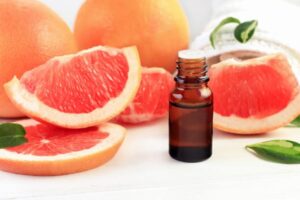 Grapefruit Essential Oil:
Grapefruit Essential Oil: Lemon Essential Oil:
Lemon Essential Oil: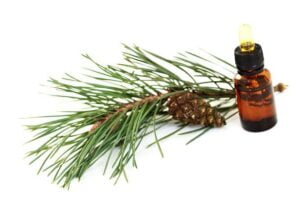 Cedarwood Essential Oil:
Cedarwood Essential Oil: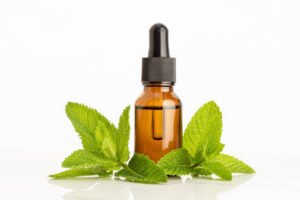 Peppermint Essential Oil:
Peppermint Essential Oil: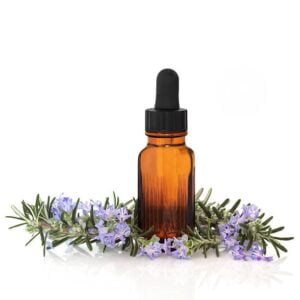 Rosemary Essential Oil:
Rosemary Essential Oil: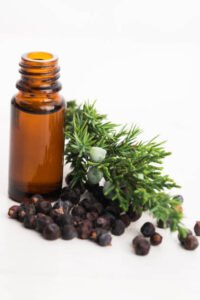 Juniper Berry Essential Oil:
Juniper Berry Essential Oil: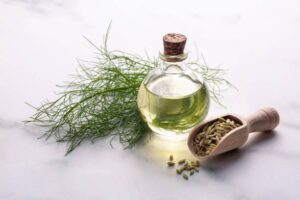 Fennel Essential Oil:
Fennel Essential Oil: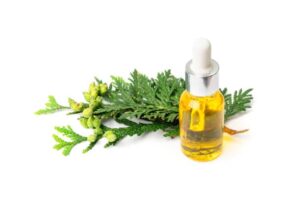 Cypress Essential Oil:
Cypress Essential Oil: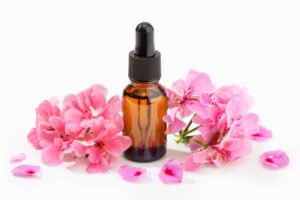 Geranium Essential Oil:
Geranium Essential Oil: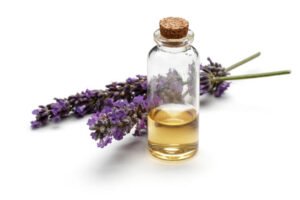 Lavender Essential Oil:
Lavender Essential Oil: